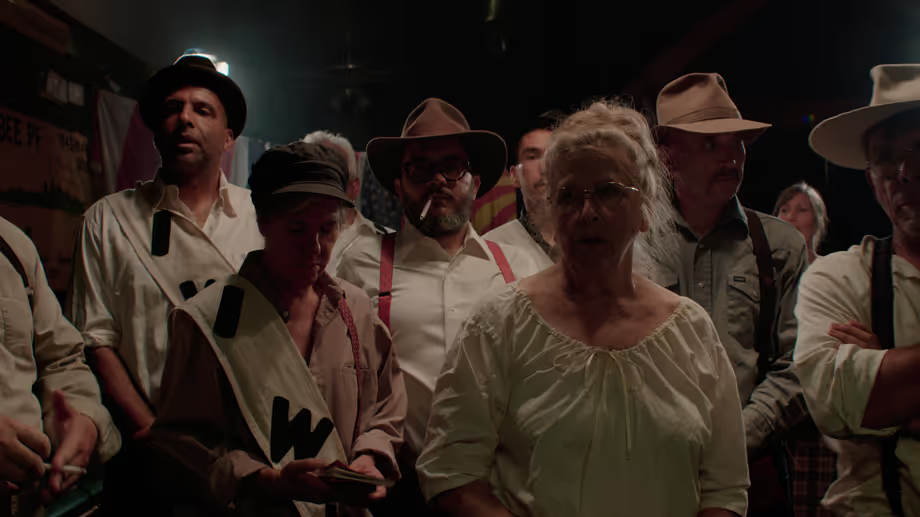Bisbee '17: Discussion Guide Discussion Prompts: Legacy
Discussion Prompts: Legacy

Bisbee mayor David Smith notes that in this former “company town,” many people still believe that the mines will come back and that the companies “will never let anything [bad] happen to us.” He is skeptical. In your view what, if anything, does a corporation that once ran a company town owe the town and its people when it decides to shut down operations? How can the mythology of a company town continue to shape the residents’ economic and social identities after the company has shut down?
Defending Walter Douglas, head of the mining company and the person that Graeme plays in the reenactment, Dick Graeme says, “You hit a point where you have to make a decision between what is right and what is legal. They’re not always the same. And you must always do what is right.” Can you think of other contexts in which this argument has been made? Are they similar or different from this one? What criteria would you use to make a decision if confronted with a choice between doing what is right and doing what is legal? How would your criteria strengthen or weaken the equitable rule of law going forward?
When reenactor James comments that it “seemed like everyone that came here pretty much tried to assimilate to the culture that we had established already,” Fernando pushes back: “Well it’s not like they [Mexicans]… came here, you know? It’s the white people that came here, so then they brought these customs to them.” Who is the “we” in James’ account? Where do you see the consequences of a having population that doesn’t know their own region’s (or country’s) history?
The Greenway School, where Richard Hodges works, is named for a mine manager indicted for – but never convicted of – kidnapping and conspiracy for his role in the deportation. If you were a student or parent in the school district, would you favor re-naming the school? Why or why not?
- How might the film influence people’s thinking on any of these current issues?
- anti-union laws and initiatives, often labeled as “Right to Work” policies
immigration policy - minimum wage standards
- local governments that pass favorable policies or offer financial incentives to help companies that promise jobs
- mining companies that cause environmental damage
